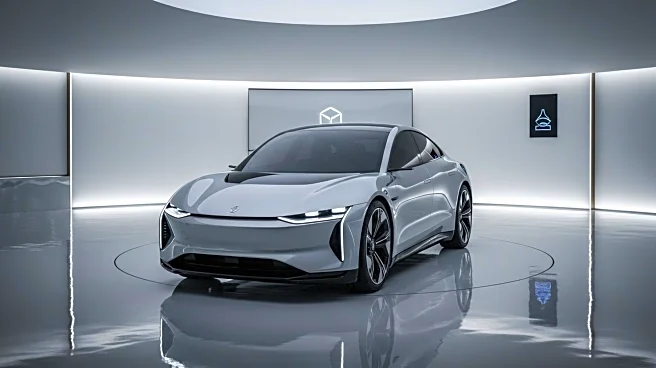What's Happening?
Porsche has announced a delay in the rollout of its electric vehicles (EVs), citing challenges such as U.S. import tariffs, a decline in the Chinese luxury market, and a slowdown in the ramp-up of electric mobility. The company plans to extend the production of combustion engine models, despite the European market's 2035 deadline to ban new petrol and diesel cars. Porsche's stock fell by more than 7% following the announcement, and its parent company Volkswagen also saw a similar drop. The company has reduced its projected profit margin from up to 7% to 2% or less, reflecting the intense competition from Chinese brands like BYD and XPeng.
Why It's Important?
Porsche's decision to delay its EV rollout highlights the significant challenges faced by European car manufacturers in transitioning to electric mobility. The move underscores the impact of global economic factors and competitive pressures from Chinese rivals, which are affecting demand for luxury cars. This development may influence other carmakers to reassess their strategies and timelines for electrification, potentially affecting the industry's overall progress towards sustainable transportation. The delay could also impact Porsche's market position and financial performance, as it navigates these complex dynamics.
What's Next?
Porsche is likely to continue lobbying for relaxed emission targets in Europe, as it adjusts its strategy to balance electrification with its traditional combustion engine offerings. The company may also explore partnerships or innovations to enhance its competitiveness in the EV market. Industry stakeholders, including regulators and competitors, will be watching closely to see how Porsche's strategic shift affects the broader automotive landscape and the pace of electrification.
Beyond the Headlines
The delay in Porsche's EV rollout raises questions about the feasibility of current emission targets and the readiness of the automotive industry to meet them. It also highlights the geopolitical and economic factors influencing the global transition to electric vehicles, as manufacturers navigate tariffs, market fluctuations, and competitive pressures. The situation may prompt discussions about the need for flexible policies and collaborative efforts to support the industry's sustainable transformation.










